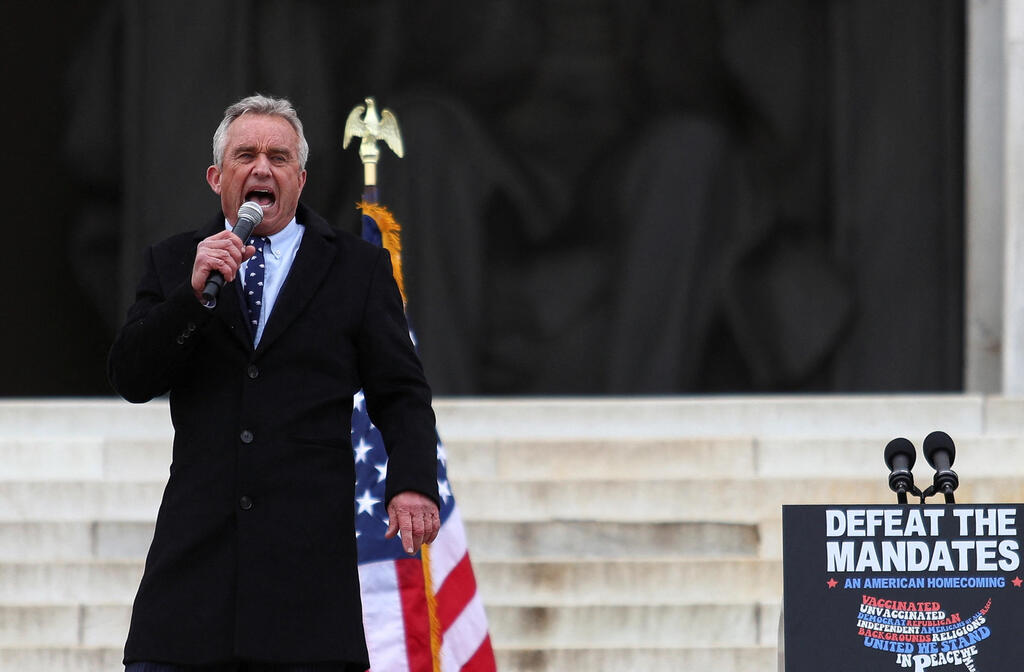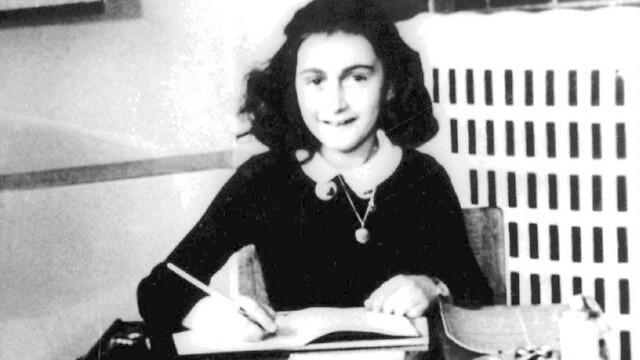Robert F. Kennedy Jr. on Tuesday apologized for remarks he made over the weekend in which he invoked the Holocaust while speaking at an anti-vaxxer rally.
At the rally on Sunday in Washington opposing vaccination mandates against COVID-19, the lawyer and son of the slain U.S. Senator Robert F. Kennedy said, "Even in Hitler's Germany you could cross the Alps into Switzerland, you could hide in an attic like Anne Frank did."
2 View gallery


Robert F. Kennedy Jr. speaks during a rally following a march in opposition to COVID-19 mandates on the National Mall, in Washington, D.C., U.S., January 23, 2022
(Photo: Reuters)
On Tuesday, he tweeted, "I apologize for my reference to Anne Frank, especially to families that suffered the Holocaust horrors. My intention was to use examples of past barbarism to show the perils from new technologies of control. To the extent my remarks caused hurt, I am truly and deeply sorry."
The teenage Frank hid from the Nazis in an attic for two years in Amsterdam, not in Germany. Her story was detailed in a diary published after her death in 1945 at a German concentration camp, one of six million Jews killed by the Nazis.
Recently, a six-year cold case investigation identified a surprising suspect in the betrayal and consequent death of the famous German-Dutch diarist.
A team of historians, criminologists, and data specialists all concluded it "very likely" that Jewish notary Arnold van den Bergh — in an attempt to save his own family — betrayed Anne and seven other Jews who were hiding for nearly two years in a secret annex above a canal-side warehouse in Amsterdam.
The investigators noted that van den Bergh allegedly had access to information about Anne's hiding place because he was a member of Amsterdam’s wartime Jewish Council — a body set up by the Nazis to oversee the same Jewish populations they were exterminating.
The investigators added that van den Bergh — who died in 1950 — was not sent to a concentration camp approaching the end of the war, strengthening the assumption he betrayed his own people to save his family.
Some experts, though, suggested that the evidence used to make the distinction was inconclusive.


